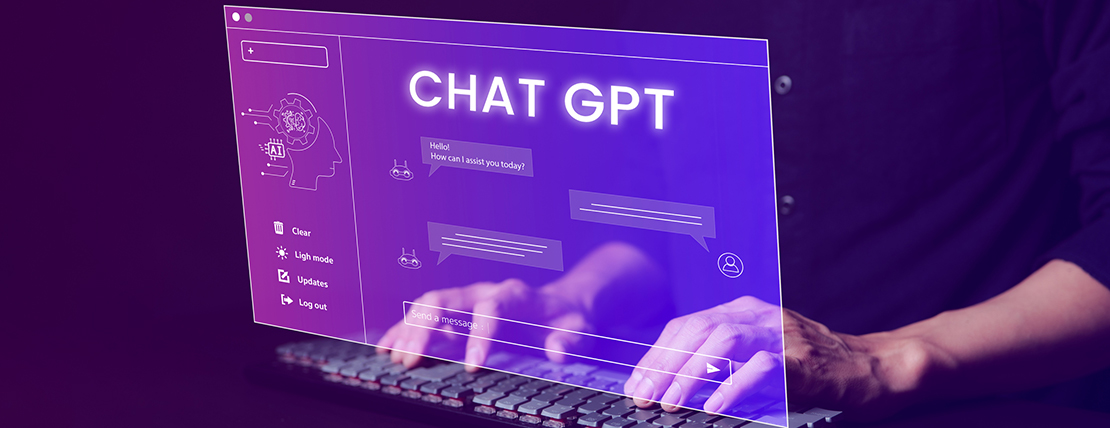- An employee development opportunity. As organizations integrate ChatGPT into their work processes, they should leverage it as an employee development tool.
- Framing the conversation. As new technology such as generative AI gets introduced into the workplace, a natural employee inclination is fear-based resistance out of job security concerns. Communicating its value and ways it will benefit their own careers and job status can alleviate those concerns.
- Considering rewarding the skill. Another way to foster acceptance of these new technologies is by incentivizing skill-building and achievement through financial and non-financial rewards (such as recognition). This could be leveraged as a powerful behavioral step to accelerate skill acquisition and motivate complacent employees.
The emergence of generative AI tools such as ChatGPT are already influencing how organizations approach certain processes, as they look to streamline and improve efficiency across the business.
Navigating and deploying these tools, however, has also given rise to predictions of the technology replacing certain existing jobs and creating new ones as companies learn how to best leverage its potential.
With these forecasts as a backdrop, experts see an opportunity for employers to frame this new, powerful technology as a career development opportunity — with the intention of staving off job replacement concerns, building skills and improving the employee and customer experience. Is it possible?
“Absolutely,” said Justin Sun, global compensation advisor at Expedia. “As concerns arise around how AI may replace certain jobs, organizations should ensure they’re clearly emphasizing the benefits of automation and how it’s grounded in the company’s strategy of improving workflows and the customer experience.”
Career Development
Sun said that with companies seeking to be more efficient in managing labor costs, some roles may inevitably be replaced by technology. But employers should focus on promoting how this tech can be used as a tool to help employees be better at their day-to-day jobs, rather than entirely replacing their roles.
To provide specific development resources for employees, Sun said organizations that have a learning and development function can ensure they’re creating internal courses and forums for employees to upskill themselves, where needed, to meet evolving business needs.
“Amidst the move to machine learning and AI, leaders will need to ensure that employees are continually focused on sharpening their creativity and critical thinking skills,” he said, “and that includes problem solving and working effectively with teams — capabilities that can’t be replicated effectively by a machine.”
Sun added that content curation is part of an effective overall strategy, as each workforce could have a spectrum of AI adopters — from those that are already active users of foundational models and numerous plug-ins, to others who will have never actively used AI tools and will have hesitancy and trepidation to do so.
“Once this basic curriculum is established, they can begin to grow custom modules and opportunities that apply to their specific business and employees,” Sun said.
First Steps to Spark Learning
In this area, Babak Pahlavan, CEO and founder of NinjaTech AI and former Google product management leader, advises employers to walk before they run, adding that the best first step is to consider ways that every employee can get started with AI, and then graduate into specific tools to try that could enhance their role.
“Once the ‘spark’ is lit within an employee, they will likely accelerate their learning and expansion of other AI tools,” he said.
Michael Piker, a strategic HR leader with over 25 years of global experience in various business sectors, recommended taking advantage of a learning management system that curates and deploys an AI curriculum organization wide, and linked to an employee recognition platform once the accreditation is acquired.
Additionally, he said deploying role modeling and offering case studies that focus on problem solving are ways to improve successful outcomes when it comes to educating employees on the trend.
“Nothing beats an internal or external expert showing, discussing and leading a conversation on AI topics,” Piker said. “And you also should inspire employees through compelling leader-led learning.”
Rewarding Generative AI Skill Development
Piker said that another way to foster acceptance of these new technologies is by incentivizing skill-building and achievement through financial and non-financial rewards (such as recognition). This could be leveraged as a powerful behavioral step to accelerate skill acquisition and motivate complacent employees.
“As a natural evolution, those who re-tool themselves will be rewarded and achieve more compensation over time, but it does make sense for employers to create incentives and rewards to accelerate this process,” he said.
Also, Piker said an effective communication strategy should take a “multi-faceted engagement” approach — with one idea being changing the tone of the conversation from “What it is taking from me to how it will help me do my job better?”
As for communication methods, he recommends Slack channels, town halls, “outside-in” case-study sharing and engagement surveys to drive key messaging home, he said.
Given the rapid pace of evolution and adoption of AI, Pahlavan said it is important for companies to have a workforce that is excited to adapt and is motivated to go through the process of discovery in finding and evaluating new applications of AI.
“Whatever you do, focus on AI being fun and that change is good,” Piker said.
Editor’s Note: Additional Content
For more information and resources related to this article see the pages below, which offer quick access to all WorldatWork content on these topics:




